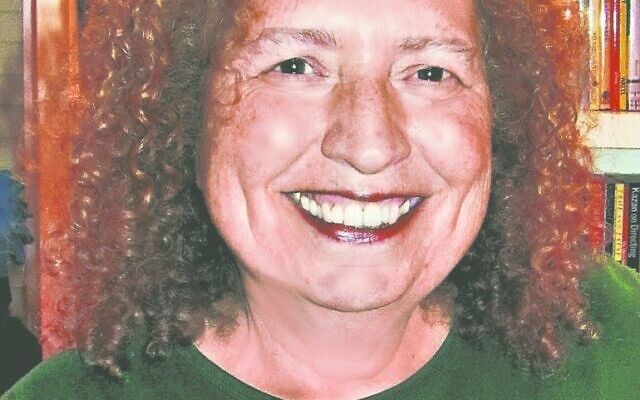Let All Who Are Hungry Come and Eat
Chana recalls memories of Passover holidays from her youth growing up in southern Illinois.
Chana Shapiro is an educator, writer, editor and illustrator whose work has appeared in journals, newspapers and magazines. She is a regular contributor to the AJT.
My brother and I grew up in small towns in southern Illinois. In order to be part of a meaningful and joyful Pesach, my family always stayed in St. Louis with my maternal grandparents throughout the holiday, and we came a few days early to help clean and cook.
During the week, my brother and I got to spend time with our great-uncle Louie. Louie was my Grandma Rose’s older brother, and he, too, moved into my grandparents’ two-bedroom home. My brother and I slept on the porch, and Louie slept on a couch in the hallway.
Louie lived in a mysterious, different world from ours, somewhere deep in downtown St. Louis, where he rented a room that none of us ever saw. He was very poor, yet he lived independently and sustained himself by selling newspapers.
He had friends who kept an eye on him and would let my grandmother know if he was sick or hurt. Louie had no phone, so every few weeks my mother packed a load of home-cooked food and boxes of cereal. My father drove downtown to Louie’s newspaper corner, checked up on him and delivered the meals. Louie would only meet my father at his work corner, and, to my knowledge, no one in the family knew his exact address.
Louie was born in Europe. He was severely injured as a baby, in the steerage section of the ship that brought him from Poland to America around the turn of the 20th century, and lived for the rest of his life with the use of only one arm and a pronounced limp.
After he graduated from eighth grade, Louie left home. His American-born sister, Rose, my grandmother, was his only family connection. After she married my grandfather, Louie had a safe refuge when he wanted it, and from time to time he took the bus to my grandparents’ house for a good meal and a bath, always going home with lots of food and laundered and pressed clothes. Sometimes my tailor grandfather made new garments for him.
Louie loved the week of Pesach with the family, when my brother and I were thrilled by his tales of derring-do. We listened to the old-fashioned songs he told us he had written (he hadn’t, but he sang them with gusto). I don’t remember if he had a good voice, but his performances were top-of-the-line.
Louie knew lots of crazy yoyo tricks and he taught us knock-knock jokes. He made us hats out of the comics section of newspapers, and he also taught us how to fold airplanes that were excellent flyers. Louie knew how to make them do tricks as they soared in the air, which my brother and I considered marvelous. “Practice makes perfect!” Louie used to say, encouragingly, but we preferred watching Louie’s aeronautical feats.
Every day, my grandmother brought the three of us snacks continuously. Louie was always hungry, but never asked for anything. Grandma was understandably worried about her older brother’s health and, feeding my brother and me between meals, also put food out for Louie.
While we noshed, my brother and I sat at the kitchen table, peeling parboiled potatoes and polishing Kiddush cups, and Louie entertained us and made us laugh. I was six or seven years old before I was fully aware of Louie’s handicaps — such was the power of his jovial personality and ability to make our days so much fun.
The seating at my grandparents’ seders was hierarchical. My grandfather sat at the head of the table, then came the uncles, then came the aunts, then came the kids. Louie sat with us and our cousins, and one year he demonstrated that he could read the Haggadah upside down.
He may have had the whole Haggadah memorized, but we believed him and were delighted that Louie possessed yet another remarkable ability. When we came to the part where my grandfather got up, opened the door, and called out, “Let all who are hungry come and eat,” Louie nodded emotionally.
The day after Pesach ended, we and Louie stayed to help put the Pesach dishes away and wash the bedding. That night, my father drove Louie back downtown. We were sad to see him go, and my grandmother forced him to take bags of food with him. “Rose, it’s not about the food,” he always insisted.
Eventually, I understood that a lot of it actually was about the food. At our seders today, when my husband, Zvi, opens the door and calls out, “Let all who are hungry come and eat,” I imagine Louie’s fully-nourished soul floating in to find a grandchild to delight by reading the Haggadah upside down.




comments